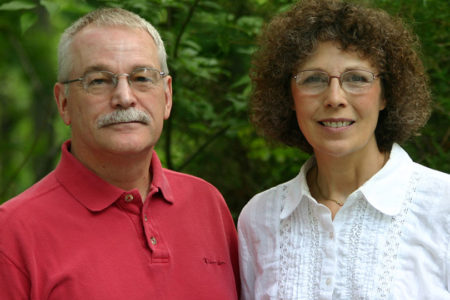Pulling the Plug on Christian TV in Israel
When Israelis turn on their televisions, they can choose from a sophisticated array of programming: educational, live political debate, ESPN and FOX sports, the History Channel, home shopping, and much more. But if one Israeli cable company has its way, Christian broadcasting may no longer be among the options.
HOT Cools on Gospel Programming
The HOT Cable Network, which in 2006 permitted Daystar Television Network to air on Channel 98 upon customer request, wants to end Christian programming because of concerns about its religious content. HOT reaches about 1 million homes. Daystar also can be seen in Israel on the YES satellite system, which has about 635,000 viewers, and on the Hotbird 6 Satellite that taps into another 185,000 homes.1
Ironically, in examining the issue, I’ve concluded that one of the best arguments for Christian television in Israel comes from the rabbinical opposition to it.
There is no denying Israel’s Judaic background, both in its historic biblical origins and in the creation of the State of Israel in 1948. Judaism shapes the vast majority of Israeli culture and life. But where Israel falls on the secular vs. sacred scale, at least in terms of its national identity, is not easy to determine.
In the weeks following the HOT cable announcement, more than 150 Israelis commented on The Jerusalem Post’s talkback blog. Those against Christian broadcasting all voiced a similar thought: Israel is not a civil, secular state like America. It is a religious state with a single, unified religious foundation: Judaism, and differing or competing religious worldviews have no mandatory “right” to be heard.
On the other hand, there is an increasingly strong push for full democratization of Israeli life. In their 1999 book Jewish Fundamentalism in Israel, Israel Shahak and Norton Mezvinsky, both academics, argued that “fundamentalist” Judaism (loosely defined as “Orthodox” and “nationalistic”) is incompatible with Israel’s growing tendency to be a democratic nation. Secularism is also rising in Israel. In 2006 the Israel Supreme Court recognized the rights of a homosexual couple that married in Canada to register as a married unit in Israel, arguably permitting them to have the same rights as married heterosexuals, including the rights to adopt.2
Furthermore, the emigration of 20,000 Israelis each year has many worried about Israel’s future.3 Thus we can understand why some feel strongly about Christian programming that is aimed to “convert” Jewish people. They believe that when a Jewish person embraces Jesus as the Messiah, Israel has lost another Jewish citizen.
Israel’s Council for Cable TV and Satellite Broadcasting will make the final determination regarding Christian broadcasting. However, as an attorney, I would urge the Council to maintain it in as many forms as possible, particularly if they are opt-in versions at the consumer’s request. But my reason has less to do with law, demographics, or secularism than it does with the Bible.
A Common Biblical Thread
In researching the issue, I discovered that one of the most consistent opponents to Christian broadcasting in Israel is Tovia Singer, an Orthodox rabbi in his forties. His Web site, OutreachJudaism.org, calls Rabbi Singer the “top counter-missionary in the world, teaching and educating thousands, bringing many back to their Judaism.” He found the idea of airing the Christian gospel in Israel “unimaginable.”4
On his Web site he addresses the subject of “Judaism’s Responses to Christian Missionaries.” So I listened to one of his lectures, called “How Do Missionaries Paint Jesus Into the Jewish Scriptures?” His main premise is that Christian theology presupposes a conclusion, rather than deductively trying to discover it. He believes Christian theology predetermined that Jesus is found within the Hebrew Scriptures and then set out to prove it.
Rabbi Singer’s didactic approach is entertaining, lively, and generally respectful of Christianity, though he considers it totally unbiblical. For instance, he disputes the truth of Matthew 2:14–15, which says Joseph “took the young Child [Jesus] and His mother by night and departed for Egypt, and was there until the death of Herod, that it might be fulfilled which was spoken by the Lord through the prophet, saying, ‘Out of Egypt I called My Son.’”
Most New Testament versions connect the “out of Egypt” quotation with Hosea 11:1: “When Israel was a child, I loved him, and out of Egypt I called My son.” Rabbi Singer points out the Gospels show that Jesus was called to Egypt to flee Herod, not out of Egypt, as Hosea indicates. However, he ignores the fact that God called His Son Jesus both into Egypt to preserve Him and then “out of Egypt” so that Jesus could return to first-century Israel to fulfill His mission of reconciliation between God and man.
Rabbi Singer’s second point is that Hosea 11:1 could not refer to Jesus’ flight to Egypt because it says, “when Israel was a child.” However, sometimes an entire nation can be identified as a person (“My son”). Likewise, a single person can be associated with the entire nation of Israel. Such was the case with Jacob. After struggling with God, Jacob is renamed Israel (Gen. 32:28). Bible scholar John F. Walvoord, late president of Dallas Theological Seminary, put it this way:
Why was Joseph directed to Egypt?Why not to Babylon with the Magi, or some other direction? Matthew (2:15) cites Hosea 11:1, “Out of Egypt have I called my Son,” referring to the exodus of Israel from Egypt to the promised land. Matthew draws the contrast between Israel, as the Son of Jehovah going to Egypt and returning, to Christ, the greater Son who also came from Egypt. In both cases, the descent into Egypt was to escape danger. In both cases, the return was important to the providential history of the nation of Israel.5
My point is this: In both Rabbi Singer’s critique of the Christian gospel and my defense of it, we traveled over the same theological geography, namely, the Hebrew Scriptures. We both rendered interpretations of the same texts, though with differing results. It seems to me that the best reason to air Christian broadcasting within Israel is that stout-hearted rabbis like Tovia Singer and others are free to counter what they see and hear.
As long as Israelis are not forced to watch gospel programming and as long as there are rabbis out there with the freedom to dispute it, Israeli viewers stand to benefit. In essence, then, Christian broadcasting within Israel is like the proverbial family reunion. While it may engender squabbles and disagreements, there is a familial tie between Christians who bring the message of Jesus Christ and Jewish Israelis just as there was between the apostle Paul—a Jewish scholar—and the people of Israel for whom he prayed (Rom. 11:1).
A powerful responsibility, however, rests on the shoulders of Christian broadcasters. They must be respectful, tasteful, honest, and biblical. We are guests in a land that bears the very imprint of God’s hand on history. And our broadcasts should always reflect that fact.
ENDNOTES
- “Daystar Television Network makes broadcasting history,” May 10, 2006 <acctv.com.au/articledetail. asp?id=4351>.
- “Israel’s Supreme Court approves same-sex marriages performed abroad,” International Herald Tribune, November 21, 2006 <iht.com/articles/ap/2006/11/21/africa/ME_GEN_Israel_Same_Sex_Marriages.php>.
- Yaniv Berman, “The Lost Tribe of Israel,” July 3, 2007 <themedialine.org/news/print_news_detail.asp?NewsID=18173>.
- Ze’ev Orenstein, “Israeli Cable Provider to Cancel Christian TV Network,” July 23, 2007 <www.israelnationalnews.com/News/News.aspx/123169>.
- John Walvoord, Matthew: Thy Kingdom Come (Chicago: Moody Press, 1974), 23.







